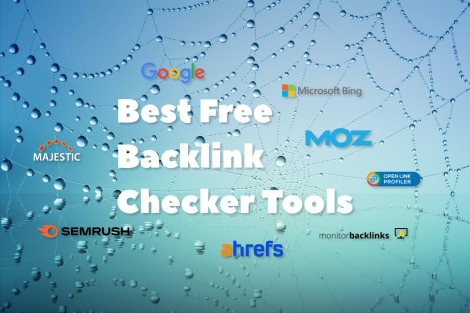After months of development, we are excited to introduce our web technology ranking and comparison service to the public. This new section of Webmaster Tips is designed to help developers, business owners, marketers, and analysts explore, analyze, and compare the technologies that power the web.
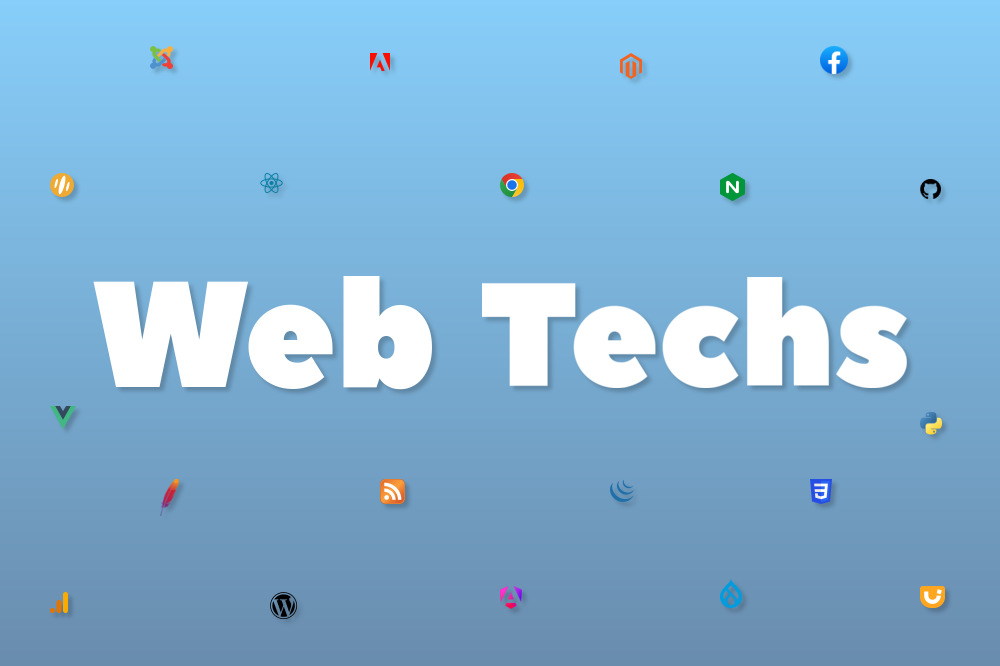
Technology Rankings
Our service tracks more than 3,800 technologies used across websites worldwide. These are organized into over 150 categories, including CMS, e-commerce solutions, frontend and backend frameworks, analytics tools, advertising platforms, payment systems, web standards, content delivery networks, and more.
Want to know which technologies dominate globally or in a specific niche? Just take a look at our charts to see the most popular technologies on the web.
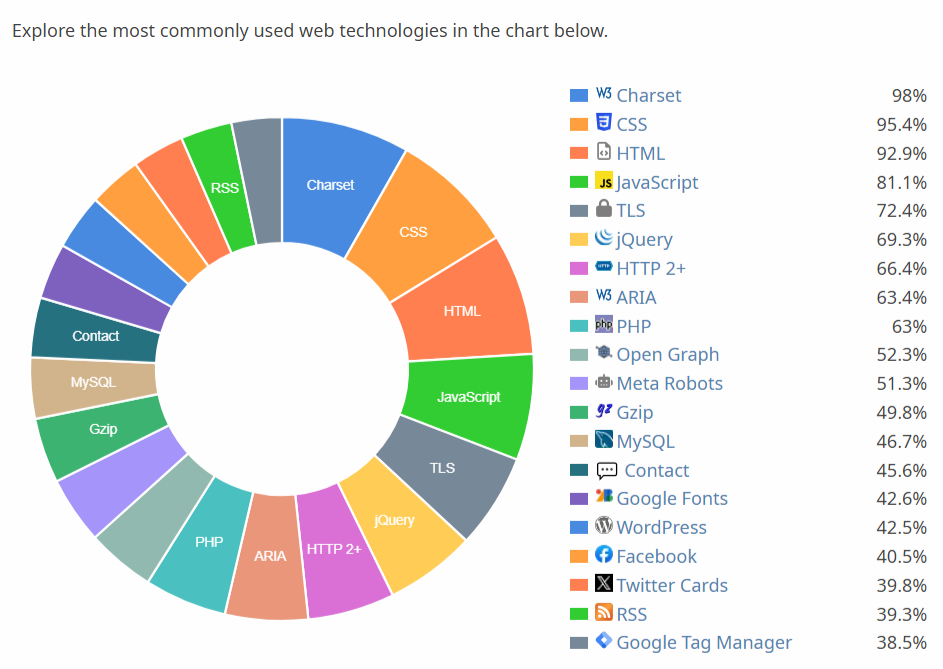
You can also browse technologies by category, ranked by their market share. For example, here is a chart showing the most popular frontend frameworks as ranked by us:
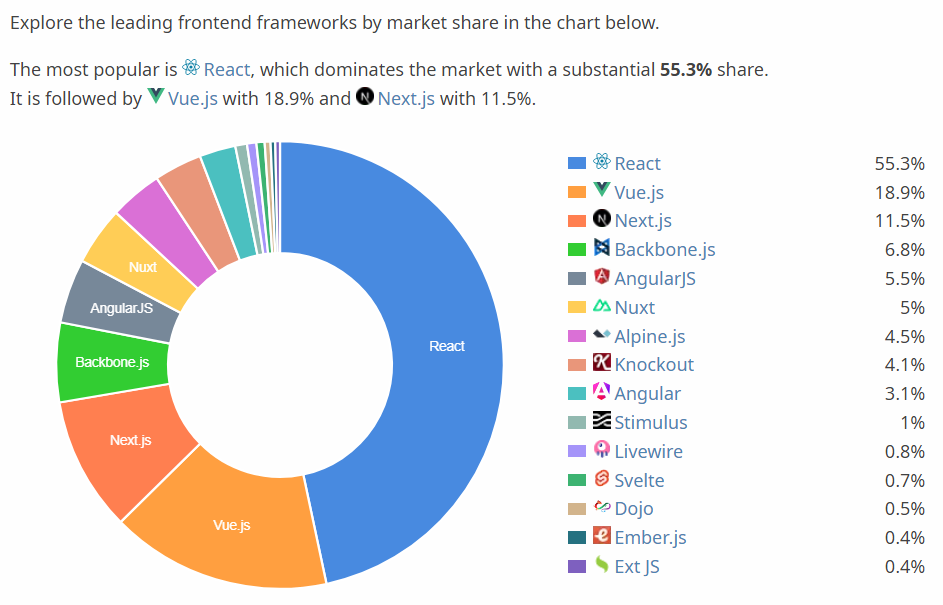
Detailed Technology Information
For each technology in the database, you'll find detailed information that includes:
- a brief description of the technology
- links to its official website and source code (if available)
- pricing information
- usage statistics, including where the technology is most popular — broken down by top countries, languages, and domain categories
- a list of the top 20 most popular websites using the technology
- a list of the technologies similar to this technology.
For example, here is what the Contentful CMS profile page looks like:
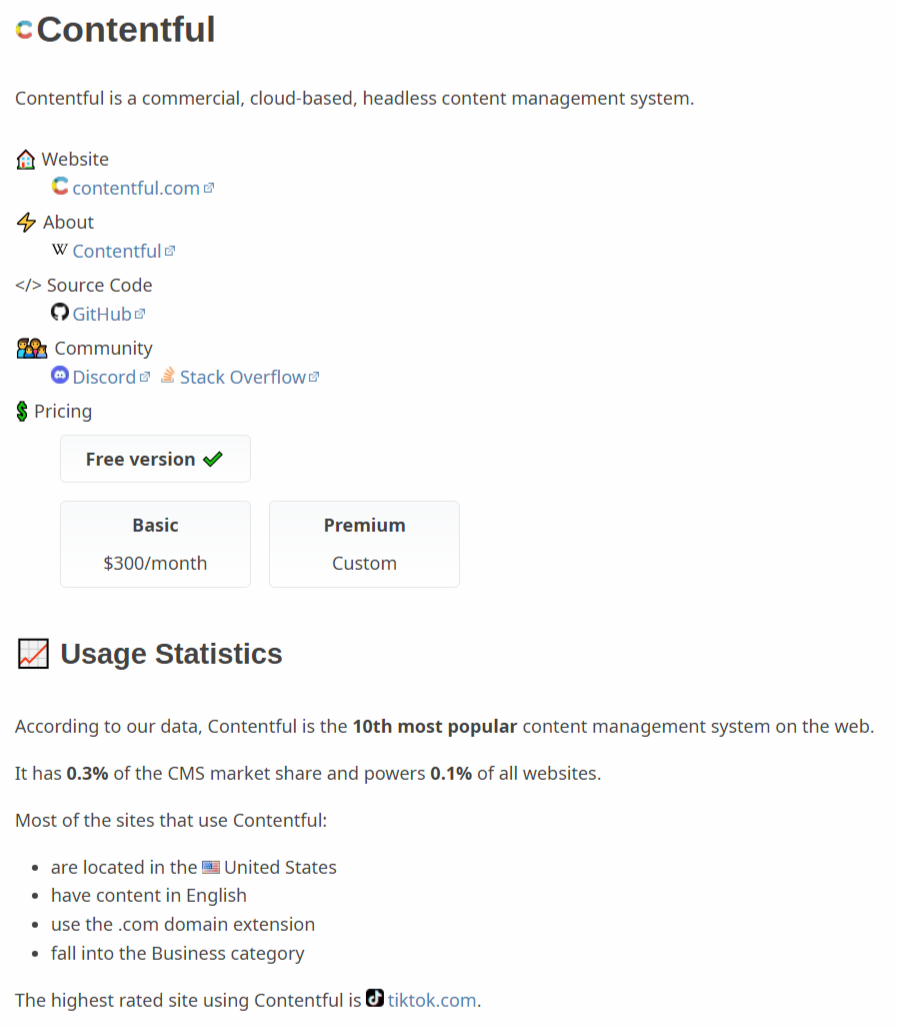
This data makes it easy to identify trends, evaluate competitors, or simply satisfy your curiosity.
Country Segmentation
One of the standout features of our service is the ability to explore how technologies perform in different countries. By drilling down into specific regions, you may discover unexpected differences between local and global trends.
For your convenience, we highlight technologies that stand out on a country level compared to the entire world market.
For example, while WooCommerce leads the global e-commerce market with around 50% market share, it only holds 13% in Japan, where local platforms such as Color Me Shop and EC-CUBE are particularly popular.
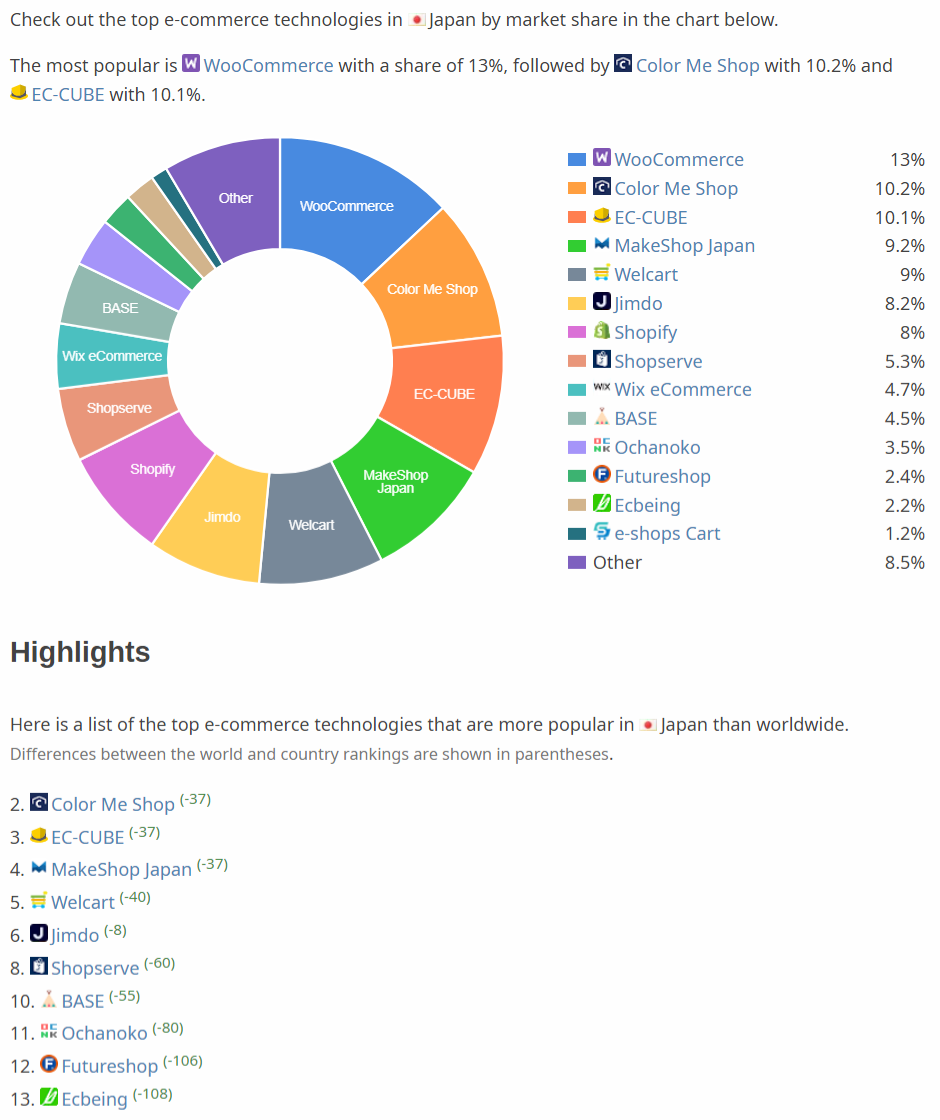
Technology awards add another layer of insight. These highlight where technologies have especially strong positions.
For example, TYPO3 ranks 4th globally among all content management systems, but it is the most popular CMS in Rwanda and the second most popular in Germany, Austria, and Switzerland:
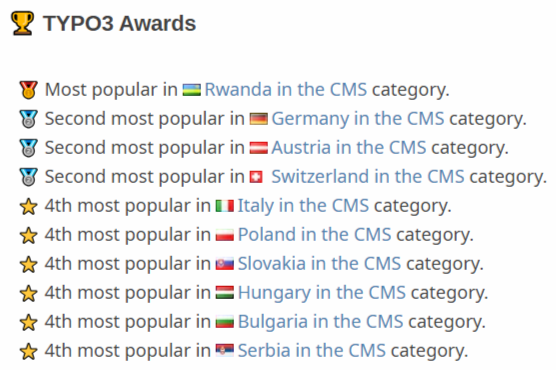
Version Statistics
For some technologies, we've gone even further by providing statistics on versions, editions, and other specific values.
For instance, you can see that Nginx version 1.14 is the most common, powering 22.4% of the sites where versions were detected:
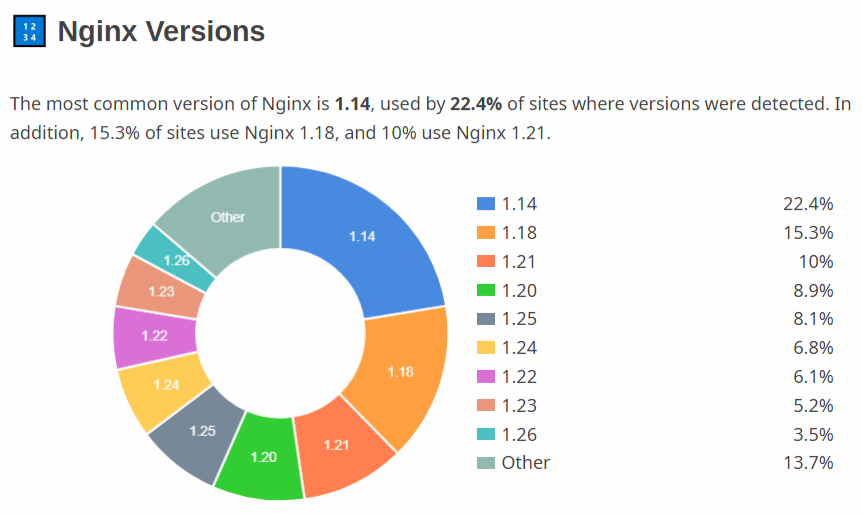
Similarly, the Lite edition of WPForms dominates with 93.5% of installations, while the Pro edition trails with 6.5%:
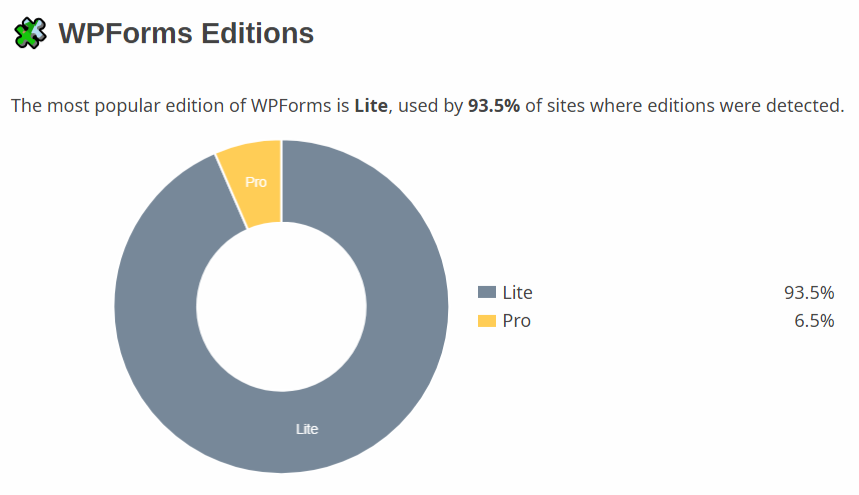
You'll also find statistics for some other values, like Charset or Meta Robots:
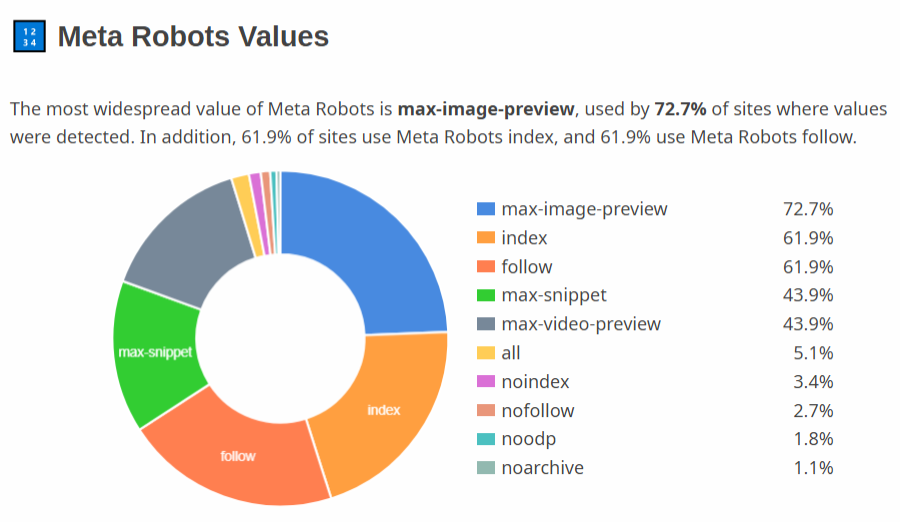
Linked Technologies
Another feature that sets this service apart is that we also track technologies that are linked from websites. This allows you to estimate the popularity of online services such as social networks, code repositories, customer review platforms, marketplaces, business listing and design portfolio platforms, audio streaming services, and URL shorteners.
For example, the page of social networking technology Facebook provides a list of the top sites that link to Facebook along with their Facebook profiles:
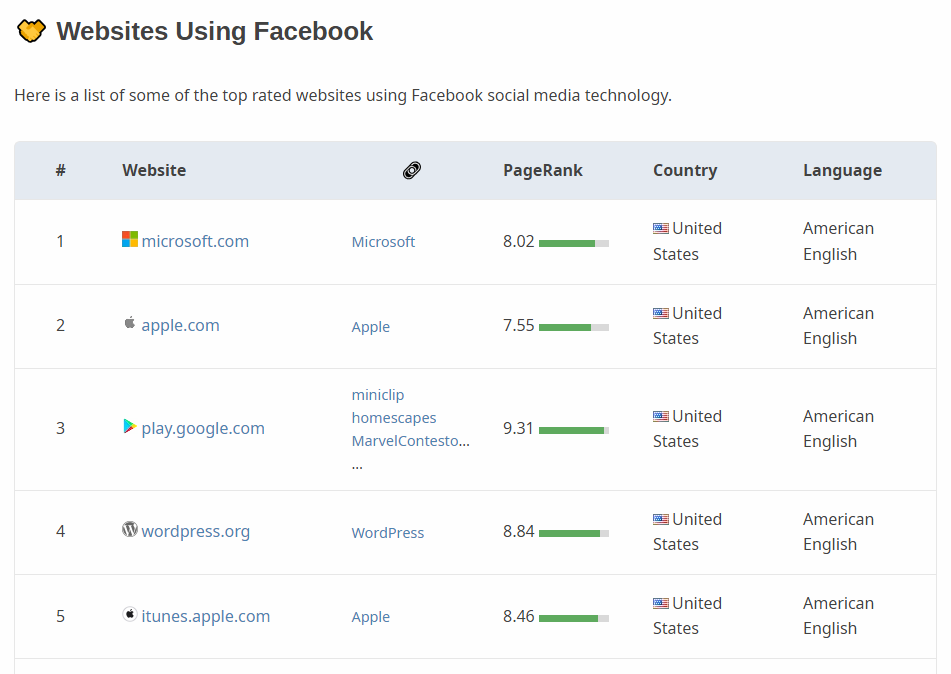
Compare Technologies Side-By-Side
Want to know how two technologies compare to each other? Our side-by-side comparison tool lets you answer questions about which is more popular: React vs. Vue, Bluesky vs. Threads, or Linux vs. Windows.
For example, you can see that Linux dominates in countries like the United States, Germany, and Italy, while Windows leads in China, Turkey, and Denmark:
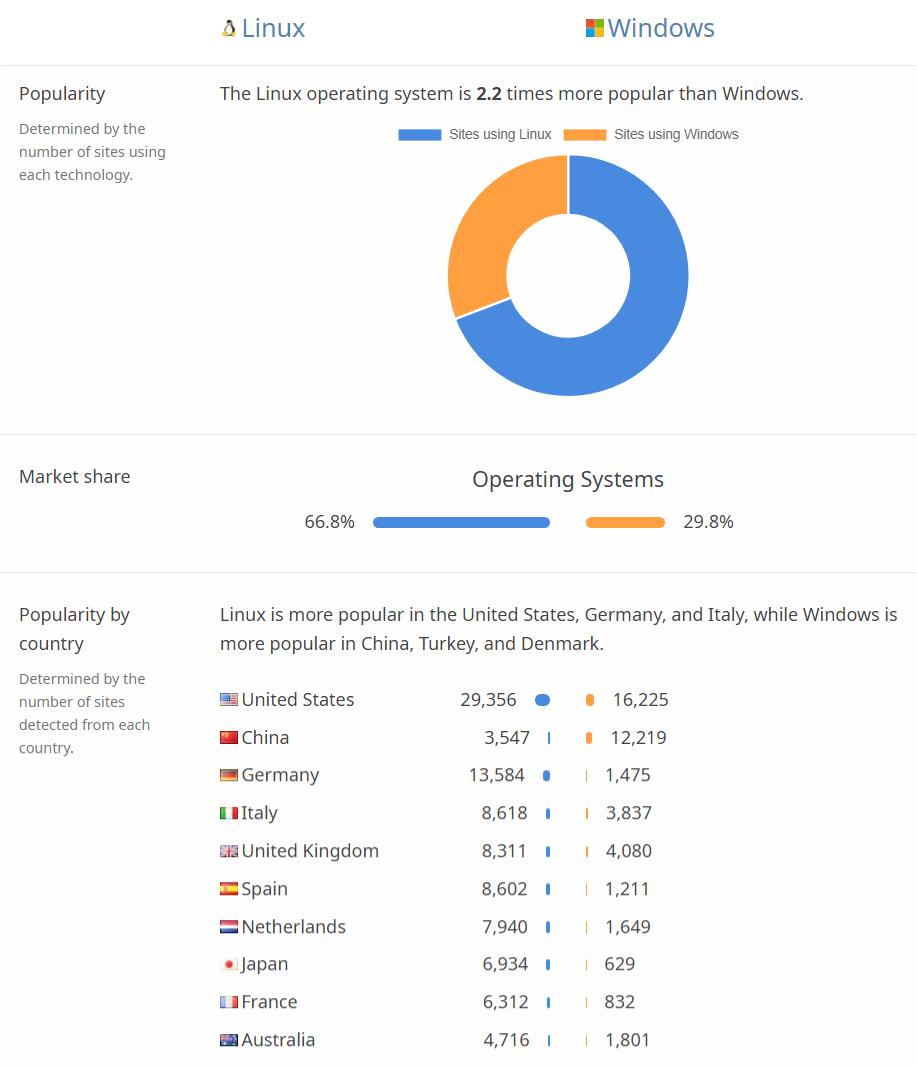
Advanced Detection and Better Accuracy
We strive to detect technologies as accurately as possible. We use advanced algorithms that are able to detect technologies often missed by other services, such as backend frameworks like Flask, Laravel, and Phoenix.
Also, many sites today use Whois privacy and hide their IP address behind a CDN. Our multi-level country detection methods do their best to detect the country of the website, providing more accurate geographic segmentation.
Conclusion
We're proud to share this new service with the world and hope it will be a valuable resource for anyone seeking insights into web technologies. Whether you're a developer picking your next framework, a business owner scouting for the best e-commerce platform, or a researcher analyzing global trends, we believe there's something here for everyone.
Your feedback is welcome. Tell us what you think. Suggest technologies you would like us to add.
Start exploring the technologies shaping the web today!



